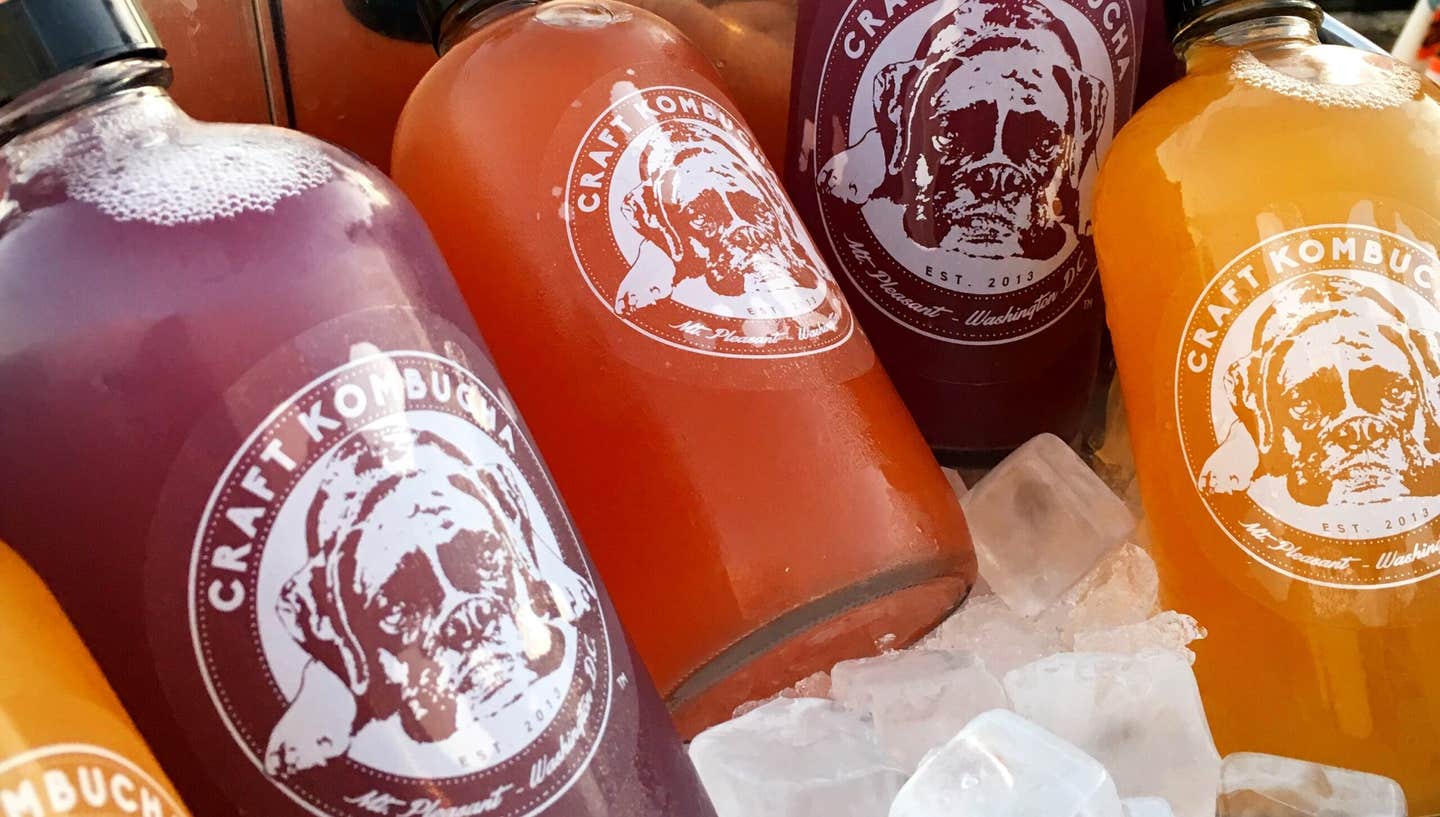Kombucha Offers Major Benefits in Battle Against Type-II Diabetes
The groundbreaking results suggest that this fermented beverage could be a crucial ally in the fight against type-II diabetes.

[Aug. 2, 2023: Staff Writer, The Brighter Side of News]
People with type 1 diabetes must constantly monitor their blood glucose levels, as their bodies produce minimal or no insulin on their own. (CREDIT: Creative Commons)
A recent pilot study conducted by researchers from Georgetown University's School of Health, the University of Nebraska-Lincoln, and MedStar Health has shed new light on the potential benefits of an ancient fermented tea drink: kombucha.
The groundbreaking results suggest that this fermented beverage could be a crucial ally in the fight against type-II diabetes.
The study, which took the form of a 12-person feasibility trial, found that those diagnosed with type-II diabetes experienced a notable reduction in their fasting blood glucose levels after consuming kombucha for a period of four weeks.
This revelation, when juxtaposed with the findings from a similar-tasting placebo beverage, lends weight to the growing body of evidence in favor of dietary interventions aimed at lowering blood sugar levels.
The origins of kombucha can be traced back to 200 B.C. in China. Having stood the test of time, the drink's appeal in the U.S. began to soar during the 1990s. Many attribute this surge in popularity to the wealth of anecdotal claims that champion its array of health benefits, ranging from improved immunity and enhanced energy to reductions in food cravings and inflammation. However, until now, solid evidence supporting these claims has been somewhat scant.
Related Stories
Speaking on the significance of the findings, Dr. Dan Merenstein, M.D., professor of Human Sciences at Georgetown’s School of Health, and a professor of family medicine at Georgetown University School of Medicine, commented, “Some laboratory and rodent studies of kombucha have shown promise and one small study in people without diabetes showed kombucha lowered blood sugar, but to our knowledge this is the first clinical trial examining effects of kombucha in people with diabetes. A lot more research needs to be done but this is very promising.”
Merenstein went on to laud the unique approach taken during the trial. He said, “A strength of our trial was that we didn't tell people what to eat because we used a crossover design that limited the effects of any variability in a person’s diet.”
For clarity, the crossover design referenced saw one group consuming approximately eight ounces of either kombucha or the placebo beverage daily over four weeks. Following a two-month ‘wash out’ period to neutralize the biological effects of the beverages, the drinks were then swapped between the groups, and consumption continued for another four-week period. Throughout the trial, participants remained unaware of which beverage they were receiving.
Blood sugar levels for individual participants receiving kombucha or placebo. 7-day mean fasting blood sugar levels for subjects collected at baseline (B), week 1 (1), and week 4 (4) for each treatment. Results from each patient are color-coded across each study arm. (CREDIT: Frontiers in Nutrition)
The impact of kombucha was profound. After four weeks, average fasting blood glucose levels dropped from 164 to 116 milligrams per deciliter. In stark contrast, the difference after four weeks with the placebo proved insignificant. As a point of reference, the American Diabetes Association has set forth guidelines stipulating that blood sugar levels before meals should fall between 70 to 130 milligrams per deciliter.
Diving deeper into the science behind kombucha, researchers sought to understand the specific ingredients driving its effects. They discovered a balance of lactic acid bacteria, acetic acid bacteria, and a yeast variant named Dekkera. RNA gene sequencing subsequently confirmed these findings. The specific kombucha utilized for this study was sourced from Craft Kombucha, a well-known manufacturer based in Washington, DC. In light of the study, the brand has since been rechristened Brindle Boxer Kombucha.
Community microbiota observed through 16S rRNA gene sequencing for bacteria (A) and ITS sequencing for fungi (B). Heat trees were generated using Metacoder, where node size and color reflect the number of OTUs that correspond to a particular taxa and taxonomic relative abundance, respectively. (CREDIT: Frontiers in Nutrition)
Robert Hutkins, Ph.D., from the University of Nebraska-Lincoln and the study’s senior author, highlighted the consistency of kombucha's microbial composition across different manufacturers: “Different studies of different brands of kombucha by different manufacturers reveal slightly different microbial mixtures and abundances. However, the major bacteria and yeasts are highly reproducible and likely to be functionally similar between brands and batches, which was reassuring for our trial.”
In a nation where an estimated 96 million Americans grapple with pre-diabetes, and where diabetes stands as the eighth leading cause of death, these findings are both timely and essential.
Seven day mean fasting blood glucose levels at baseline and week 4. (CREDIT: Frontiers in Nutrition)
Chagai Mendelson, M.D., the lead author of the study, underscored the larger ramifications of the research, stating, “We were able to provide preliminary evidence that a common drink could have an effect on diabetes. We hope that a much larger trial, using the lessons we learned in this trial, could be undertaken to give a more definitive answer to the effectiveness of kombucha in reducing blood glucose levels, and hence prevent or help treat type-II diabetes.”
As the battle against diabetes intensifies, the discovery of potential allies, even those as unassuming as a fermented tea drink, is both exciting and inspiring. Only time will tell if kombucha will make its mark as a game-changer in this global health challenge.
For more science and technology stories check out our New Discoveries section at The Brighter Side of News.
Note: Materials provided above by The Brighter Side of News. Content may be edited for style and length.
Like these kind of feel good stories? Get the Brighter Side of News' newsletter.
Joseph Shavit
Head Science News Writer | Communicating Innovation & Discovery
Based in Los Angeles, Joseph Shavit is an accomplished science journalist, head science news writer and co-founder at The Brighter Side of News, where he translates cutting-edge discoveries into compelling stories for a broad audience. With a strong background spanning science, business, product management, media leadership, and entrepreneurship, Joseph brings a unique perspective to science communication. His expertise allows him to uncover the intersection of technological advancements and market potential, shedding light on how groundbreaking research evolves into transformative products and industries.



